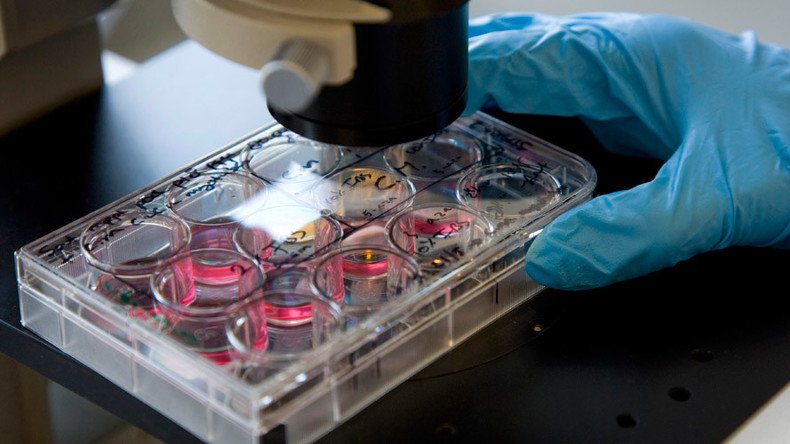Cancer-fighting gene-editing tool to begin human trials in China

It may be banned in the UK, but DNA editing technology will begin trials on humans in China next month in the hope of curing lung cancer. The technique known as ‘Crispr’ acts like a scissors, cutting out unwanted sections of DNA.
A team of scientists at Sichuan University’s West China hospital in Chengdu will be the first to use the technique on humans after successful trials with monkeys.
"If this technology has good safety and shows certain efficacy, it has wide applications," Lu You, an oncologist leading the trials, told Bloomberg.
‘Editing DNA’ to eliminate genetic conditions now a reality http://t.co/SmA3Ux3TXEpic.twitter.com/UwuPXg4gHI
— RT (@RT_com) April 22, 2014
Using Crispr, the team will extract blood from a lung cancer patient for whom other treatments have failed. A gene that encodes a protein named PD-1 and hides cancer from the immune system will be removed from the blood and the team believes the system will then attack the cancer cells.
A biotechnology company will collaborate on the trial to make sure the correct cells are being attacked before the sample is re-introduced to the patient, according to the journal Nature. An excessive autoimmune response could lead to the risk of healthy cells being attacked.
World's first human CRISPR trial to start next month https://t.co/t30d7SeGN4pic.twitter.com/oi25RkHj1K
— Nature News&Comment (@NatureNews) July 23, 2016
After the sample is reintroduced, the patient will be monitored for two months before two more patients receive the treatment. If successful, the team hopes to accelerate the treatment.
“When it comes to gene editing, China goes first,” Tetsuya Iishi, a bioethicist from Hokkaido University in Japan told Nature. China is currently ahead of the US in trials for the treatment and has been criticized for moving too fast.
Lu said his team was able to begin human trials so quickly because the members were experienced with clinical trials of cancer treatments.
READ MORE: No 'designer babies': Groups warn of potential dangers in human embryo modification
The editing of human DNA is prohibited in the UK with concerns over ‘designer babies’. The Crispr treatment does not affect the germ line, meaning any changes made to the subject would not be congenitally inherited by its offspring.
In the US Crispr was approved for human trials in June. Backed by Napster founder and billionaire Sean Parker, the team embarking on the first trials is still awaiting approval from the FDA and the hospitals where the treatment can be administered.












